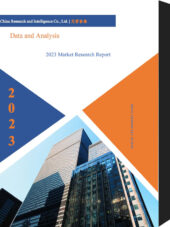Description
Market insights:
Smart lights are weather-adaptive and includes the use of Internet of Things (IoT) for lighting homes, streets, factories and commercial spaces intelligently. Lighting automation technology enables consumers to adjust lighting remotely. The Indian smart lighting market is expected to reach a value of INR 373.7 Bn by 2023, expanding at a compound annual growth rate (CAGR) of ~38.44% during the 2018-2023 period. Growth of the smart lighting market is owed to the government’s push in terms of the ‘Smart City Mission’, and ‘Digital India’ programs, as well as rising adoption of smart homes across the country.
The smart lighting market is segmented based on offering, lighting source, communication technology, and application type. Based on offerings, the smart lighting market is categorized into hardware, software, and services. Based on the lighting source, the market is classified into LED bulbs, downlights, batten lights, and others. Based on communication technology, the smart lighting market is categorized into wired technology and wireless technology. Based on the application type, the smart lighting market is classified into indoor use and outdoor use.
Lighting source-wise segment insights:
Among the different smart light sources used in India, the Light Emitting Diode (LED) bulbs segment holds the largest share (~68%), owing to its cost-effectiveness and energy saving features. Attractive discounts and rebates are also driving the market for LED bulbs, which are used for smart lighting across the country. The Street Light National Program of the Indian government is expected to further push the market for smart LED lights.
Communication technology-wise segment insights:
In the Indian market, wired technology dominates the communication technology segment of the smart lighting market with a share of ~62%. This is because wired communication technology is considered to be more reliable, due to the presence of various company-specific proprietary protocols.
Application-wise segment insights:
In India, ~55% of smart lighting is used indoors, while the remaining is used for outdoor applications. Steady adoption of connected lighting systems in residential and commercial zones contributes to the greater share of indoor applications in the Indian smart lighting market.
Key growth drivers of the market:
o The per capita income in India stood at INR 1,12,835 in March 2018, up from INR 1,03,870 in March 2017. Such an increase in the per capita income of Indians, along with rising awareness about contemporary technological advancements, has influenced the mindset of Indians towards using smart technologies. As a result, demand for smart lighting system has increased.
o Motion-detecting lighting systems are replacing the conventional lighting methods in the smart cities and business hubs in India. Therefore, the market players have sufficient opportunities to come up with new smart lighting technologies which are capable of developing energy-saving systems in India.
Key deterrents to the growth of the market:
o The high cost of IoT-enabled systems is hindering the growth of the smart lighting market in India. Owing to its high installation costs, Indian customers are developing antagonistic attitude towards the smart-lighting system, which in turn is negatively affecting the demand of the smart lights market across the country.
o The smart lighting systems installed in India has affected the health of the users in an adverse manner. Questions have arisen concerning the potential health implications of blue-rich and solid-state of the LED lights. It is predicted that prolonged exposure of human beings to short-wavelength high intensity visible lights is phototoxic to the retina. Consumers’ awareness about such adverse health impacts is hindering the growth of the smart lighting business in India.
Companies covered:
o Ajanta India Ltd.
o Bajaj Electricals Ltd.
o Havells India Ltd
o Osram India Pvt Ltd.
o Philips India Ltd.
o Samsung India Electronics Pvt. Ltd.
o Schneider Electric India Pvt. Ltd.
o Syska LED Lights Pvt Ltd.
o Wipro Ltd.



